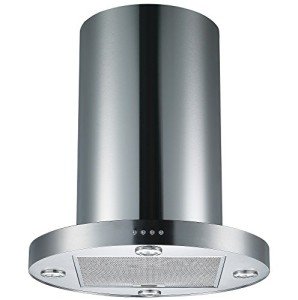20 Myths About Island Cooker Hood Extractor Fan: Busted
페이지 정보

본문

Island Cooker Hood Extractor Fan: The Essential Guide
In contemporary kitchen design, the island cooker hood for island hood extractor fan has actually become a crucial device, marrying functionality with visual appeals. As cooking areas progressively transform into multifunctional areas where cooking, dining, and socializing occur, the significance of a reliable ventilation system can not be overlooked. This short article intends to explore the benefits, types, setup factors to consider, kitchen cooker island and upkeep practices connected with island cooker hood extractor fans.
What is an Island Cooker Hood Extractor Fan?
An island cooker hood extractor fan is a ventilation appliance suspended from the ceiling above a kitchen island extractor island or countertop. Its primary function is to draw out air-borne grease, smoke, steam, and odors created throughout cooking. Unlike wall-mounted hoods, island hoods provide unblocked views and maintain a smooth design, important for open-plan living areas.
Benefits of Installing an Island Cooker Hood Extractor Fan
- Enhanced Air Quality: Removes pollutants from the air, promoting a healthier cooking environment.
- Visual Appeal: Available in numerous styles, they act as a focal point in contemporary cooking areas.
- Noise Reduction: Many designs use quiet operation, enabling comfortable kitchen discussions.
- Improved Lighting: Some hoods feature built-in lighting to illuminate the cooking surface more successfully.
Kinds Of Island Cooker Hood Extractor Fans
Island cooker hood extractor fans can be classified based on their performance and style. Here's a breakdown of the different types:
| Type | Description |
|---|---|
| Ducted Hoods | Aerate air outside through ductwork; perfect for heavy cooking tasks. |
| Ductless Hoods | Usage filters to cleanse air and recirculate it back into the kitchen; much easier to set up and preserve. |
| Convertible Hoods | Can be converted from ducted to ductless; offers flexibility based on kitchen setup. |
| Wall-Mounted Hoods | Set up against the wall but can be utilized above an island if configured appropriately. |
Elements to Consider Before Installation
When thinking about an island cooker hood extractor fan, there are a number of aspects to bear in mind:
Size and Height: The hood ought to be proportional to the cooking surface. A basic rule is to have the hood 30-36 inches above the cooking surface.
CFM Rating: Consider the CFM (Cubic Feet per Minute) ranking, which suggests the airflow capability. Higher CFM appropriates for heavy cooking.
Noise Level: Look for model specifications worrying noise levels, determined in sones. Objective for a ranking of 1.5-3 sones for quiet operation.
Style: Aesthetic appeal is essential. Choose a hood that complements the kitchen's overall design, including products and finishes.
Lighting and Features: Consider designs with built-in LED lights and additional functions like variable fan speeds.
Setup Process
Installing an island cooker hood extractor fan for island fan typically needs professional help due to the intricacies included. However, here's a short overview of the installation actions:
Preparation: Select the proper place above the kitchen island and make sure there's adequate area for ducting if needed.
Installing: Secure the mounting bracket to the ceiling, ensuring it is level and anchored into a joist for proper assistance.
Ducting (if appropriate): Run ductwork from the hood to the outside of the home, guaranteeing it is insulated to reduce heat loss if you're using a ducted alternative.
Electrical Connections: Connect the electrical circuitry based on the manufacturer's instructions, ensuring compliance with all local electrical codes.
Checking: Once installed, confirm the fan runs correctly and evaluate the lighting functions.
Maintenance Tips for Island Cooker Hoods
To lengthen the life and efficiency of an island cooker hood extractor fan, regular maintenance is vital. Here are some beneficial ideas:
Regular Cleaning: Clean the exterior and filters at least once a month to avoid grease accumulation.
Filter Replacement: If using a ductless hood, change carbon filters every 3-6 months for optimal performance.
Examine Ducts: For ducted models, ensure that ducts are clean and complimentary of blockages to keep effective air flow.
Examine Lights: Regularly check and replace burnt-out bulbs to make sure adequate lighting throughout cooking.
Frequently Asked Questions About Island Cooker Hood Extractor Fans
Q1: Do I need a permit to set up an island cooker hood?A1: It depends on local building codes. It's best to check with regional authorities or a professional installer. Q2: Can I install an island kitchen extractor hoods
cooker hood myself?A2: While some handy homeowners might try
it, employing an expert is advised due to the complexities associated with ducting and electrical work. Q3: How do I select the ideal CFM for Kitchen cooker island my needs?A3: A general standard is
to have 300 CFM for every 10,000 BTUs of the stove. For
heavy cooking, consider a higher CFM score. Q4: How often need to I clean my island cooker hood?A4: The exterior and filters ought to be cleaned up
monthly, while carbon filters in ductless designs need to be changed every 3-6 months. Q5: Are there energy-efficient models available?A5: Yes, many makers provide energy-efficient options that can conserve on electricity bills. An island cooker hood extractor fan is an integral addition to any modern kitchen Cooker Island, stabilizing aesthetic appeal with practical functionality. By understanding the types offered, considering crucial setup aspects, and adopting routine upkeep practices, property owners can guarantee their kitchen stays a fresh and welcoming area. Whether going with ducted or ductless choices, purchasing a quality island hood ensures a cleaner, healthier cooking environment.
- 이전글Your Family Will Thank You For Having This Get A Mental Health Assessment 25.05.19
- 다음글15 Fun And Wacky Hobbies That'll Make You More Effective At Railroad Settlement Bladder Cancer 25.05.19
댓글목록
등록된 댓글이 없습니다.



